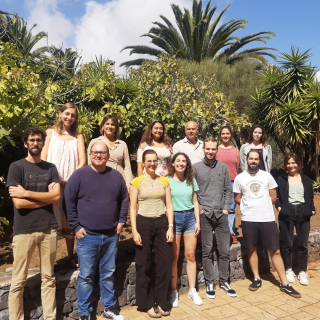Bibcode
Falcón-Barroso, J.; Sánchez-Blázquez, P.; Vazdekis, A.; Ricciardelli, E.; Cardiel, N.; Cenarro, A. J.; Gorgas, J.; Peletier, R. F.
Bibliographical reference
Astronomy and Astrophysics, Volume 532, id.A95
Advertised on:
8
2011
Journal
Citations
714
Refereed citations
670
Description
Aims: We present a number of improvements to the MILES library
and stellar population models. We correct some small errors in the
radial velocities of the stars, measure the spectral resolution of the
library and models more accurately, and give a better absolute flux
calibration of the models. Methods: We use cross-correlation
techniques to correct the radial velocities of the offset stars and the
penalised pixel-fitting method, together with different sets of stellar
templates, to re-assess the spectral resolution of the MILES stellar
library and models. We have also re-calibrated the zero-point flux level
of the models using a new calibration scheme. Results: The end
result is an even more homogeneously calibrated stellar library than the
originally released one, with a measured spectral resolution of ~2.5
Å, almost constant with wavelength, for both the MILES stellar
library and models. Furthermore, the new absolute flux calibration for
the spectra excellently agrees with predictions based on independent
photometric libraries. Conclusions: This improved version of the
MILES library and models (version 9.1) is available at the project's
website (http://miles.iac.es).
Related projects

Traces of Galaxy Formation: Stellar populations, Dynamics and Morphology
We are a large, diverse, and very active research group aiming to provide a comprehensive picture for the formation of galaxies in the Universe. Rooted in detailed stellar population analysis, we are constantly exploring and developing new tools and ideas to understand how galaxies came to be what we now observe.
Anna
Ferré Mateu